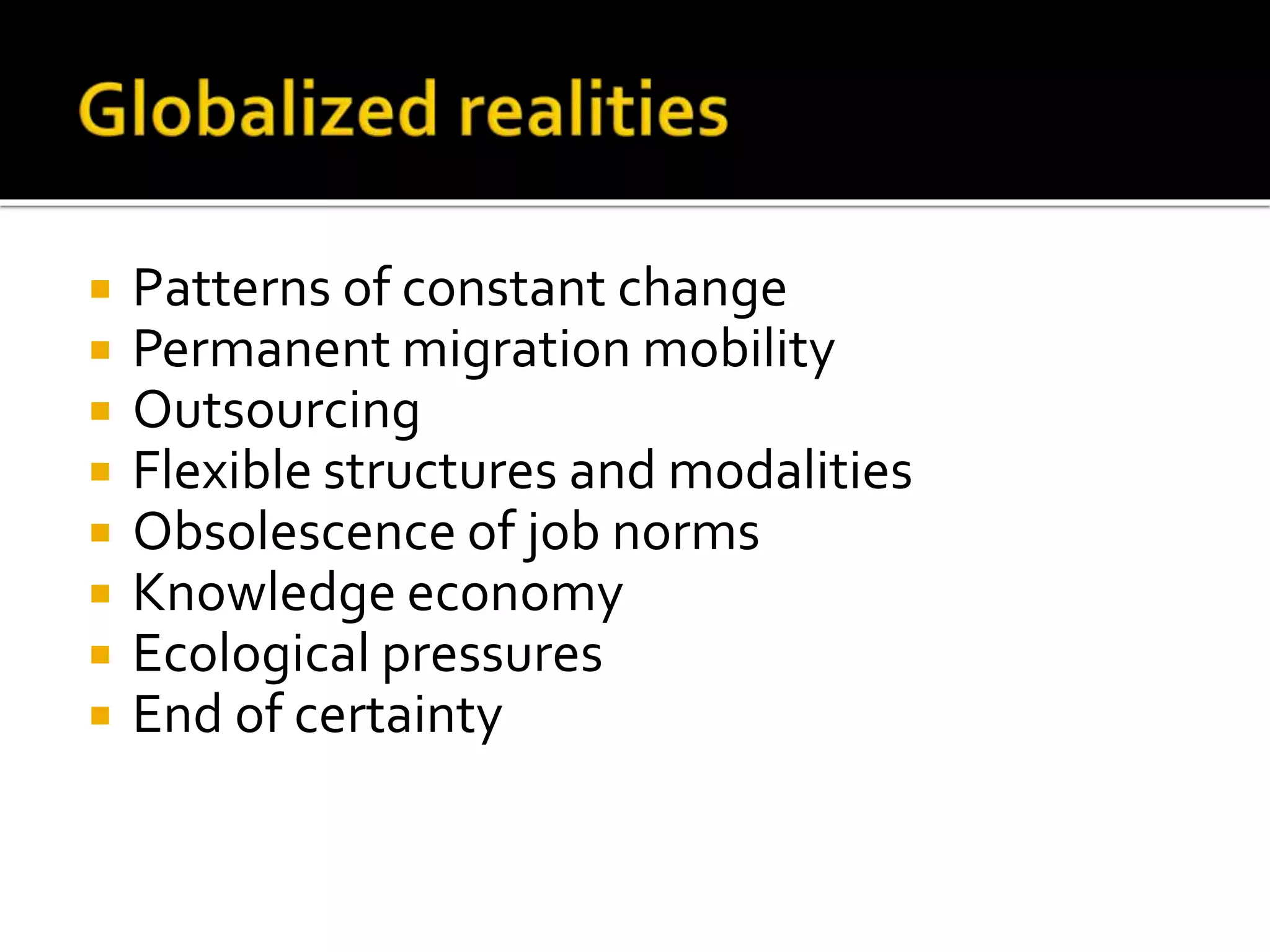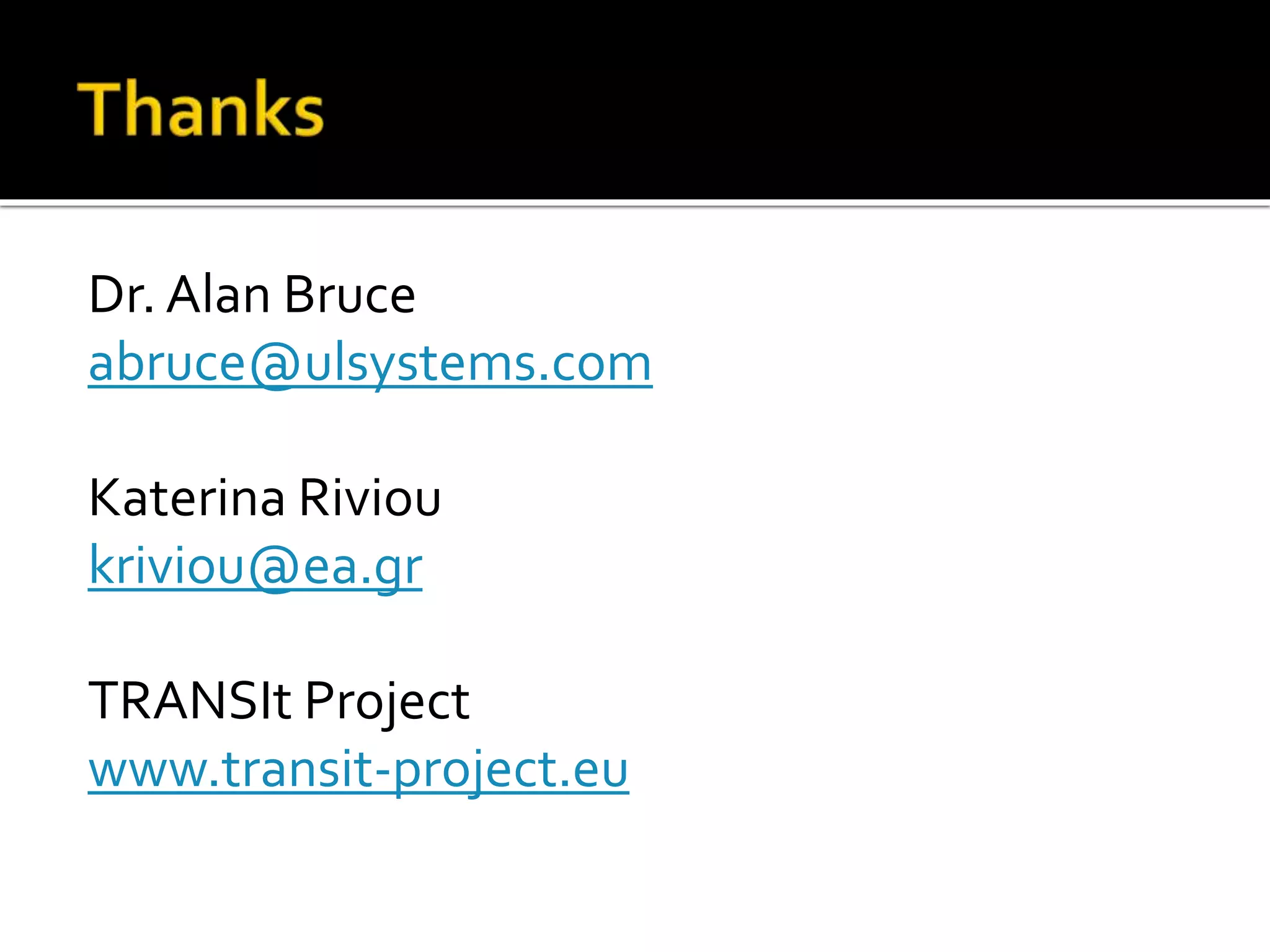The document discusses key topics around the future of European educational systems. It notes that moving from curriculum-centered systems to competence-based systems focused on skills is challenging but important. It emphasizes that education needs to incorporate technological tools, be interdisciplinary, and support learning communities. The development of transversal skills and key competencies in students is highlighted as important for future labor markets. The role of teachers in facilitating this transition through competency-based teaching and assessment is also emphasized.




























